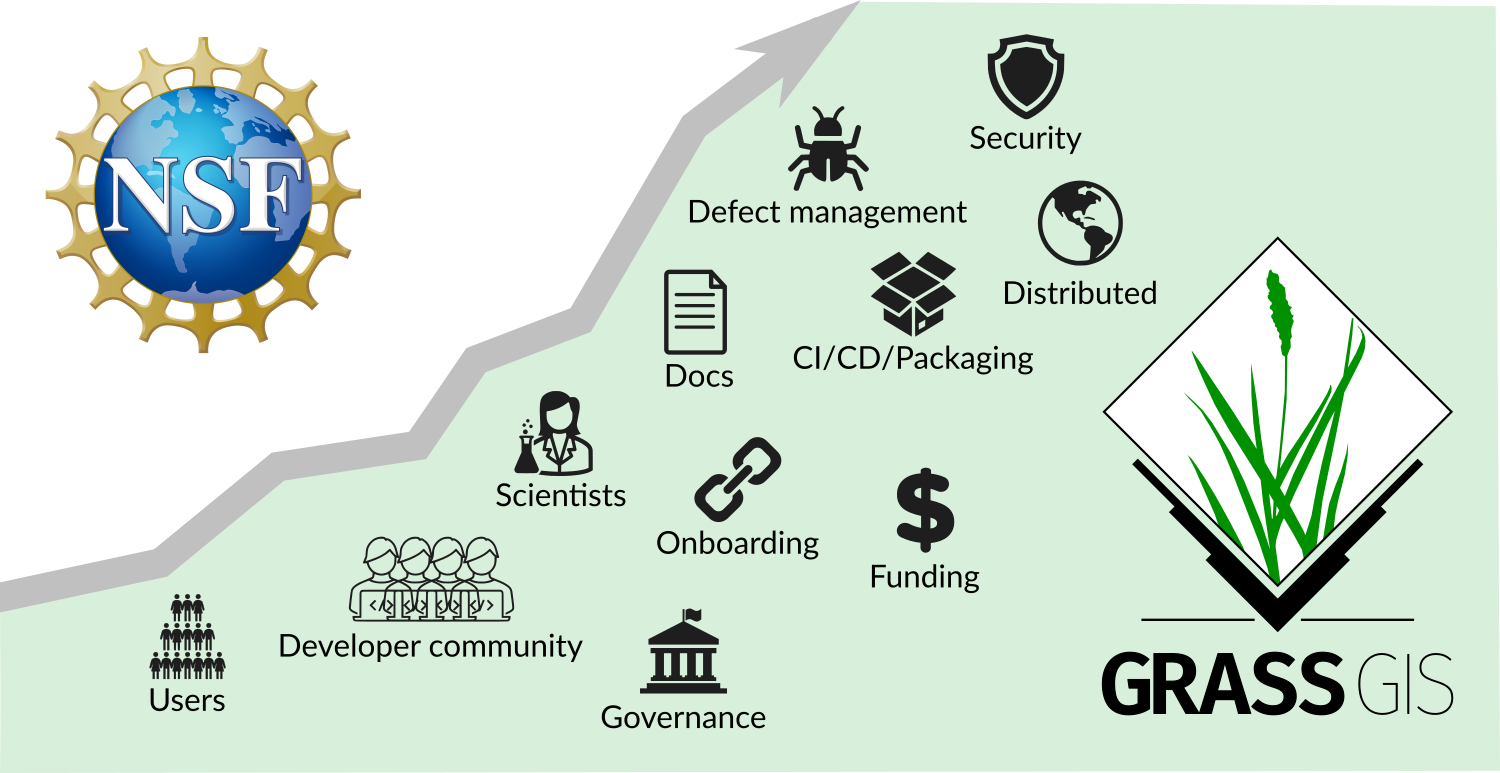NSF Grant Awarded to Enhance GRASS GIS Ecosystem
We, a team of researchers from four U.S. universities, are excited to announce a significant new project to support and expand the global GRASS GIS community. We have been awarded a prestigious grant (award 2303651) from the U.S. National Science Foundation (NSF) to bolster and broaden the software ecosystem of GRASS GIS for a world that increasingly relies on location-based information.

The two main goals of the project are: 1) to facilitate the adoption of GRASS GIS as a key geoprocessing engine by a growing number of researchers and geospatial practitioners in academia, governments, and industry; and 2) to expand and diversify the developer community, especially through supporting next-generation scientists to gain expertise to maintain and innovate GRASS software. Expanding on the currently ongoing efforts of the GRASS community, this grant will, among other things, support the modernization of the software infrastructure and distribution, enhance the code quality and security, improve documentation for users and contributors, and provide new training opportunities for GRASS GIS use and software development.
No open-source software ecosystem is sustainable without a diverse, vibrant, and growing community. As an integral part of these efforts, our team plans activities to engage the current community and expand the GRASS user and contributor base worldwide.
The NSF grant is an acknowledgement of the critical role GRASS GIS plays in addressing complex challenges across various domains and represents an exciting opportunity for the GRASS community to grow and innovate. The project team and GRASS community thank NSF for their generous support and their commitment to openness and collaboration.
Stay tuned for updates on the exciting developments ahead! In the coming weeks, we will hold an online information session for the community to ask questions and learn about our plans and how to be involved.
Helena Mitasova (North Carolina State University),
Vaclav (Vashek) Petras (North Carolina State University),
Anna Petrasova (North Carolina State University),
Michael Barton (Arizona State University),
Huidae Cho (New Mexico State University),
Giuseppe Amatulli (Yale University)